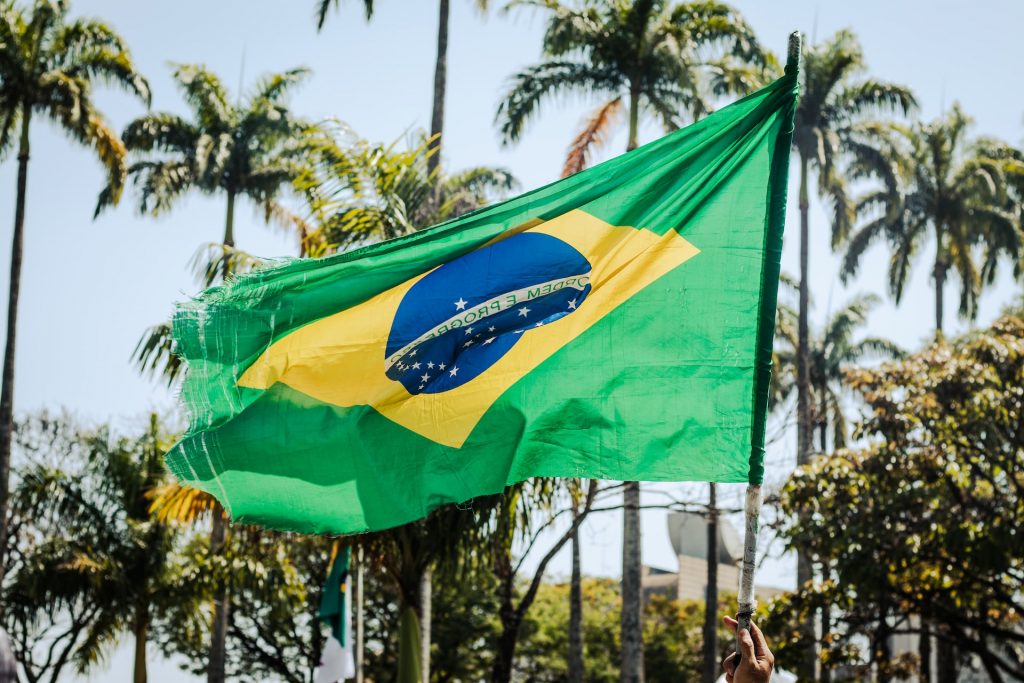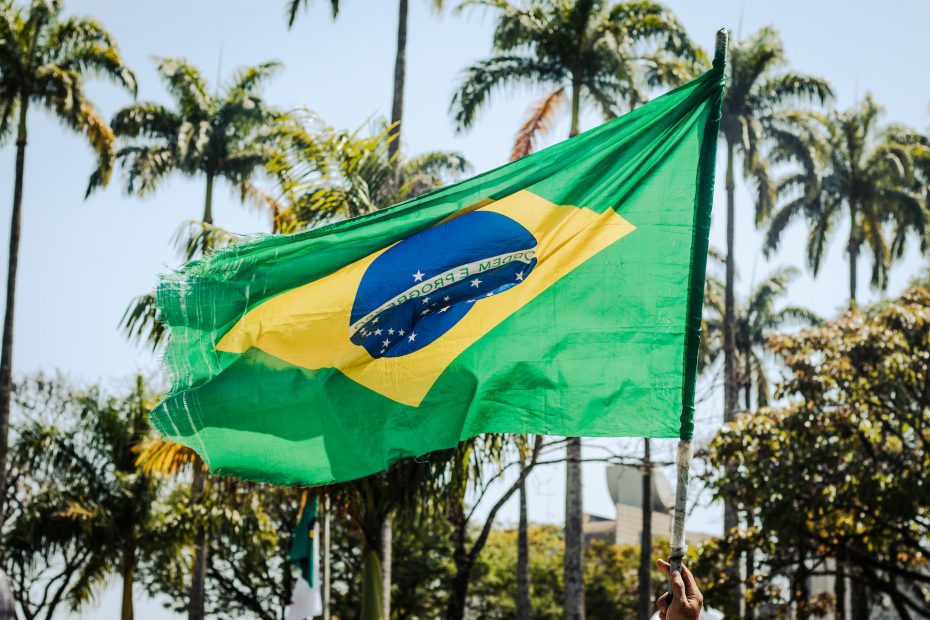Brazil which happens to be a one of the world’s biggest and massive country or nation. It is located in the central-eastern part of South America, is known to be a fascinating and fabulous Portuguese-speaking country full of excitement, passion, unique environment, adventure and with great and welcoming culture. A tropical paradise with wonderful topography and great tourist sites such as The Sugar Loaf mountain. When it comes to foods and drinks, the country’s national dish is the popular feijoada and coffee still remains the country’s national drink.

Brazil is no doubt an ideal destination for international students looking to further their study abroad in Brazil. Other exciting things to expect are; beautiful beaches, samba and soccer stars, large cities, restaurants and bars, museums art galleries, house movie theatres and so many more. All these and more serve as basic reasons for the attraction of students all over the continent who are interested in studying abroad in Brazil. It is also recognized as one of the top educational centers with a growing reputation in the world. Which makes it an outstanding place for academic and personal development of students both local and international students in Brazil who want to broaden their horizon.
This article encompasses information concerning the educational institutions, that which revolves around how to study abroad in Switzerland.
Subtopics:
- About Studying in Brazil
- Why Study in Brazil?
- Brazil Educational System Compared to Other Countries
- Top Institutions in Brazil
- Scholarships/ Financial Aids/ Bursaries
- Student Visa Processing/ Procedures
- Post Study Opportunities
Why Study in Brazil?
People hailing from all walks of life come down to Brazil to enrich their studies and academics by applying for courses made available in educational institutions of Brazil. Thus, Brazil creates high chances of easy access to inclusive and quality education, variety of courses and extensive opportunities for the proper dissemination and integration of knowledge to students studying in Brazil. Also, studying in Brazil is very affordable and convenient with a lot of public universities which provide free education for qualified international student. However, majority of the educational tertiary institutions don’t provide for student accommodation, therefore students are advised to get private accommodations, although the schools assists these students in locating available private accommodation.
In other words, they are world-class universities in Brazil which offer world-renowned program, this includes; There are also degrees which can be offered. The Bachelor’s degrees (Bacharelado) is known to take a period of about 3 to 6 years, The Licentiate degrees which takes about three or four years for its completion and The Technology degrees which take about 2 to 3 years. There are also Postgraduate degrees; Lato Sensu (degree for a specific subject area) and Stricto Sensu (degree to a PhD). Universities in Brazil also provide for PhDs offered for three to four years.
It is important to note that when applying for postgraduate courses, certain requirements must necessarily be met. Provided that such an applicant has completed his or her bachelor’s study, some of the requirements are; an application form, copies of qualifications, a copy of the receipt for the application fee payment, CV of the applicant and letter of confirmation from the applicant’s university supervisor. Brazil also has a national application portal known as SISU and registration can be made by international students to study abroad in Brazil through the SISU website.
Brazil Educational System
The public (federal or state), Catholic, and private institutions that make up the university system. Universities, faculdades (colleges), and standalone institutions make up the framework. Although research is mostly conducted in federal institutions, extension and teaching are the three main objectives of higher education in Brazil. Universities also provide quick courses in a wide range of disciplines for both students and the general public.
Brazil has 127 universities, 68 of which are public institutions. According to CAPES’s criteria, higher education careers are integrated into blocks as follows: Humanities and Social Sciences, Exact Sciences, Human and Social Sciences, and Applied Social Sciences are all subfields of the biological and health sciences and Engineering. Students must pass the vestibular admission exam in order to get admitted to a university. Grades are not taken into account when choosing a student for a university as long as they have completed their secondary education and have a diploma.
Socially advantaged children benefit from this since they receive extra support from tutors or teachers and don’t have to work while they are in school. Rich students attend government-funded, free universities while low-income students enroll in for-profit, private universities, which results in a socioeconomic divide. Governmental initiatives were started in 2001 with the goal of changing the system. Some institutions began creating their own customized vestibules, and others started considering grades into account. The minimum curriculum and time allotment for the various courses are set by the Federal Education Council (CFE). Each institution is permitted to offer extra subjects as it sees fit.
Undergraduate (graduacao)
Brazilians refer to undergraduate degrees as “graduate” degrees. Brazilian undergraduates include:
(Bacharelado) Bachelor’s degree: The bachelor’s degree requires four to six years to complete and is available in the humanities, social sciences, arts, and sciences. Students wishing to enroll in a bachelor’s degree program must possess a Certificate of Secondary Education.
(Licenciatura) Licentiate: for three to five years. It covers topics pertaining to teaching and education. A licentiate degree is an option for students who want to become teachers. You are qualified to teach any subject in primary or secondary schools after completing this degree program.
Technology (tecnologia): Offers specialized technical training and instruction over the course of two to three years, preparing students for the job market. The knowledge and skills that this degree emphasizes are specialized. There are classes available in computer technology, farming, tourism management, and other fields.
Post-graduate programmes
Master’s Degree: The master’s degree requires a minimum of 30 credit hours and takes 1-2 years to complete. To earn the degree, students must pass a predetermined minimum number of coursework, turn in a master’s thesis, and defend it orally at the program’s conclusion. The study program has a strong emphasis on theory and research, and proficiency in a foreign language is necessary.
Doctorate degree: After completing a Master’s degree program, candidates for the doctorate degree must complete three to four years of full-time study (Mestrado). Students must finish further advanced graduate coursework for this degree program, pass a doctoral qualifying exam, conduct original research on a topic, and submit their findings. Additionally, an oral dissertation defense is required. Candidates for doctoral degrees must demonstrate their proficiency in two foreign languages, and doctoral degree programs typically include at least 30 credits.
Post-Doctoral Research (pos-doutorado): This is a step of academic specialization designed to raise the bar for excellence in a particular field. If a researcher wants to advance their study in a particular field, they do this after earning their PhD.
Brazil Educational System Compared to Other Countries
The educational system of Brazil runs in a particular pattern. The Pre-School is an optional level for children. The Primary and The Lower Secondary School level is compulsory for children between the age bracket of 9 to 14 in Brazil going through the educational system of the country. The Upper Secondary School level is for students to go through training and preparation for the higher institutions. Majority of the higher education institutions in Brazil are primarily run by the government. That is the federal government, state or municipal governed.
The higher institutions consist of public or private universities which are over 2,600 in the country for nationals and international students studying in Brazil. The tuition fees of Brazilian educational institutions vary and payment is generally paid in Reals, only a few institutions accept US Dollars (range of $2000USD to $10,000USD in universities). To study abroad in Brazil without Portuguese as first language then students have the alternative of Celpe-Bras proficiency test.
Top Institutions in Brazil
There exists a variety of highly-ranked educational institutions in BrazilAccording to the 2021 Times Higher Education (THE) rankings, seven of Brazil’s higher education institutions are among the top 10 universities in Latin America. The oldest institution in Brazil, Universidade de So Paulo, is “responsible for almost 20 percent of all Brazilian academic output.” THE ranks institutions in the Latin American and Caribbean region based on performance in five categories: teaching, research, research citations, global perspective, and industry investment. Brazil has quite an impressive number of universities. Amongst these universities are:
University of São Paulo (USP)
This is one Brazil’s most prestigious universities with a strong reputation. It is located in São Paulo and was founded in 1934, with several courses provided for student’s international students that want to apply for study abroad in Brazil. The university is the largest in the country and has 11 campuses in which national students and international student’s studying abroad, are enrolled into.
University of Campinas
The University of Campinas is a non-profit public university which was founded in 1966 and located in the wonderful city of Campinas. The university encourages a broad knowledge of the Portuguese language to study in its campuses. It is an institution loved for its conducive environment, technological advancements and resources put to use for its students. The areas of the University of Campinas which have earned the university respect are; Engineering and Technology, and Computer Science.
It also makes available opportunities for its international students studying abroad. However, the university does not offer degree programmes in foreign language. For international student who wish to study abroad in this Brazilian university, for an undergraduate degree some of the course which are offer include; dentistry, medicine, applied science, basic natural and human sciences, teaching and arts.
The Federal University of Rio de Janeiro – UFRJ
The university is also referred to as “University of Brazil” or UFRJ, founded in 1920. The university has 4 campuses which are places in Rio de Janeiro. The campuses are; Cidade Universitária, Macaé, Vermelha and Caxias. It is also recognized as a large and enormous public research university in Brazil having a great influence on the activities, thoughts and growth of its students. The university’s attraction of students nationally and internationally is not surprising judging by the avenue of various courses and programs made available.
The programs held are; undergraduate program (graduação), the master’s program (mestrado) and the PhD program (doutorado). There are also broad opportunities from which international students interested in studying abroad in Brazil can tap out of. The academic calendar of the is of two semesters; The first semester (fall) is between May to July, while the second semester (spring) is of August to December. All the courses which are offered in the university are in Portuguese.
University of Brasilia
This is another high ranked university in Brazil, a comprehensive institution which was founded in 1962 and located in the country’s capital city, Brasilia. It is known for its offering quality public education to students and providing qualities technological resources, encouraging research and projects and also supporting sustainable development in its capable ways.
The university has within it twenty-six institutes consisting of 53 departments. Some of the buildings found within the university are; a hospital, student and staff residence, a sport center, student restaurant, ecological station, rectory building, animal research laboratory, farm and library. Some of the important documents which an international student applying to the University of Brasilia needs to make available are; CV, Online application form, Letter of recommendation, passport, Student visa, Local language certificate, among others.
The Federal University of Minas Gerais (UFMG)
Another excellent, prominent, renowned and topnotch university in Brazil with varies of programs and courses to which several international and national students studying in Brazil are enrolled for. The university was founded in the year 1927 and located in Minas Gerais. With the motto “incipit vita nova”. The institution places emphasis on academic activities, researches and personal growth of its students with the employment of highly qualified and skilled professionals to the institution. Also, the institution has been able to make collaborations with both domestic and international institutions.
Some domestic universities which The Federal University of Minas Gerais (UFMG) had collaborations with are; University of São Paulo (USP), Sanitation Company for Minas Gerais (COPASA), Federal University of Minas Bahai (UFBA), Federal University of Goiás (UFG), State University of Campinas, among others. Some international collaborations where also held with the likes of; Karolinska Institute, Harvard Institute, University of Groningen, Slovak Academy of Science (SAS), among other.

Scholarships/ Financial Aids/ Bursaries
As Brazil has been able to establish a growing reputation in the educational world, it has also made a vast promotion and creation of diverse scholarship opportunities which depends on certain requirements being met and different factors taken into consideration, such as citizenship and language. Some popular scholarships open to students interested in studying abroad in Brazil are:
The Brazilian Government Exchange Program; The program is open to students who have gone through higher education in other country’s apart from Brazil, for undergraduate students and postgraduate students.
The PAEC OAS-GCUB Scholarship; This scholarship is awarded by the Organization of American States every year. The scholarship is open to master’s and doctorate students who are interested to make applications.
CNPq Scholarship; This scholarship covers various areas of study, basically the areas of research, science and technology.
FAPESP Scholarship; The scholarships for this are two which namely are; educational and research scholarships. A typical example of this in a Brazilian university is the FAPESP postdoctoral program and UNICAMP, Postdoctoral Position in Biochemistry in Brazil
Student Visa Processing/ Procedures
A Student Visa is regarded as a necessity for international students in Brazil staying more than 3 months. An extension of a student visa can be sorted out at the Policia Federal. An application for the Student Visa is with certain requirements met such as passport, proof of residency, proof of acceptance into a Brazilian university, letter of confirmation from the Ministry of Education (MEC), course of study and period of study in Brazil. The Student Visa is provided for at the Brazilian Consulate or the student’s National Embassy.
For international students who want to study abroad in Brazil for a course which won’t take more than 90 days, an application for a Tourist Visa is to be made. However, for those who want to enter the country Brazil for the purpose of post-doctoral research or studies, an application for a Research Visa is to be made and not a Student Visa. To obtain a student visa, international students have to go through the Consulate General of Brazil which is in their home town or embassy. Unlike international students studying in Brazil, citizens of Brazil and other South American countries (excluding Guyana and Suriname) need not apply for visas to study in Brazil but only needs national identification card.
Post Study Opportunities
The opportunities as to post study is the chances of securing a high paid job provided the student has excellent grades. Also there is a need for a resident permit and also a Work Vis. Some wonderful places in Brazil where post study opportunities can easily have accessed are; São Paulo, the capital city Brasilia and Macaé, Rio de Janeiro.
Majority of the companies in Brazil make use of the “principle of proportionality”, however graduates can still secure jobs in Brazil such as taking up tour guides, teachers, accountants, engineers and so many more. There are also internship opportunities available for graduates that had their study abroad in Brazil. For easy access there have been online sites created for easy access to jobs and internships. With the right set of skills and a motivation to search for jobs, there’s plenty on offer – particularly in the metropolitan areas of São Paulo, Macaé, Rio de Janeiro and the capital city Brasilia.
Final Thoughts
Brazil is a dynamic, alive country that is rich in adventure, culture, and delicious cuisine and drink. Everything you need is nearby and only has to be discovered. There is also a lot of room for exploration. Brazil is a sizable nation. In actuality, it ranks fifth in terms of size globally. Brazil occupies over half of the South American continent. Brazil is an excellent spot to start your post-graduation career, aside from its warm, alluring, and friendly culture and its rising educational competence. Rio de Janeiro and So Paulo are in the epicenter of Brazil’s economic boom, which is the largest in all of Latin America. What are you waiting for, send in your application now!
